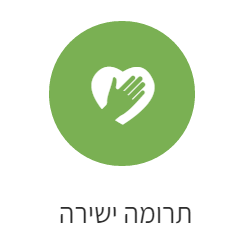Some information about the Dying Patient Act
The Israeli Knesset passed in 2005 the Dying Patient Act, with the purpose ‘to regulate the medical treatment of the dying patient, while balancing the value of the sanctity of life with the value of the individual’s autonomy and the importance of quality of life’ (section 1A of the Law).
The fundamental assumption of the law has been that while the majority of people do not want to die, they do not want to suffer at the end of life and do not want their lives prolonged artificially. Therefore they should have the right to end life in dignity without pain, whether in hospital, in hospice or at home.
This innovative law includes the following:
- Mechanisms for allowing the patient to make independent decisions, assisted by prior legally binding medical instructions (including methods for the verification of the true and well-informed wishes of the patient or of his or her previously appointed representative);
- A national registry of advance medical directives to optimize the validity of these wishes;
- Palliative care as a citizen’s right;
- Clear guidelines for healthcare professionals, detailing what is permitted and what is forbidden when treating terminally ill patients;
- The establishment of a National Ethics Committee composed of experts in all the relevant fields.
The Dying Patient Act gives the patient the right to demand or to terminate the medical treatment, no matter where the patient is being treated.
Today in Israel, every patient with terminal illness may receive hospice care and palliative care at home without payment.
Palliative care – when and how?
Studies on palliative care reveal many positive outcomes for patients, their families and hospitals. Its basic philosophy is to achieve the best quality of life for patients, even those with incurable diseases.
Palliative care is provided through comprehensive management of the physical, psychological, social and spiritual needs of patients while remaining sensitive to their personal, cultural and religious values. These services can be provided in a hospital by an interdisciplinary team of health professionals, including doctors, nurses, psychologists, social workers, and religious and spiritual helpers.
In contrast to hospice care, palliative care is offered at any stage of the disease, either in combination with life-prolonging therapy or as a convenient end-of-life treatment.
However, a dedicated team is accessible to coordinate treatment and facilitate communication with the patients and the patients’ families during their last days, in order give them the opportunity to end their lives with dignity.





